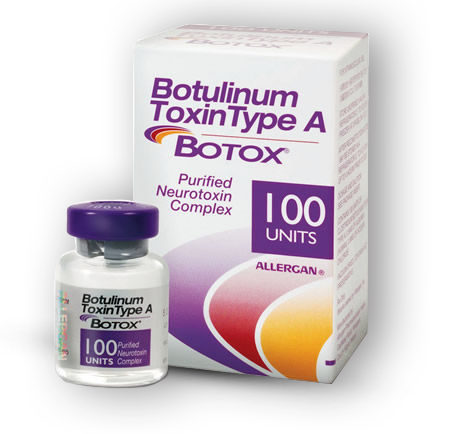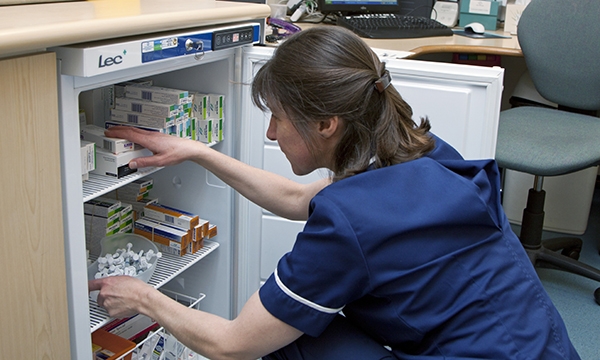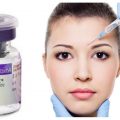What Is Botox?
Botox is a drug doctors have been using for years to treat wrinkles and facial creases. Botox is a brand name of a toxin made by the bacterium Clostridium botulinum. There are other brands, such as Dysport and Xeomin. Botox is the term you hear most often because it was the first injectable botulinum toxin.
How is Botox given?
Botox injections should be given only by a trained medical professional, even when used for cosmetic purposes. This medicine is injected into a muscle by a healthcare provider. Botox injections should be spaced at least 3 months apart.
Botox injections may be given into more than one area at a time, depending on the condition being treated.While receiving injections for eye muscle conditions, you may need to use eye drops, ointment, a special contact lens or other device to protect the surface of your eye. Follow your doctor’s instructions.
If you are being treated for excessive sweating, shave your underarms about 24 hours before your injection. Do not apply antiperspirant or deodorant for 24 hours before or after you receive the injection. Avoid exercise and hot foods or beverages within 30 minutes before the injection.
It may take up to 2 weeks after injection before neck muscle spasm symptoms begin to improve. You may notice the greatest improvement after 6 weeks. It may take only 1 to 3 days after injection before eye muscle spasm symptoms begin to improve. You may notice the greatest improvement after 2 to 6 weeks.
The effects of a Botox injection are temporary. Your symptoms may return completely within 3 months. After repeat injections, it may take less and less time before your symptoms return, especially if your body develops antibodies to the botulinum toxin.
Do not seek botulinum toxin injections from more than one medical professional at a time. If you switch healthcare providers, tell your new provider how long it has been since your last botulinum toxin injection. Using this medication more often than prescribed will not make it more effective and may result in serious side effects. ALSO SEE: How Long Does a Botox Shot Last?
How long can botox be left unrefrigerated?
It is recommended that Botox be used within 5 hours of reconstitution, which results in substantial quantities being discarded. This is not only uneconomic, but also inconvenient for treating patients. Various studies have looked into what happens to Botox when it is exposed to storage conditions outside the normal range. Allergan itself has confirmed that you can use Botox after five days at room temperature, something they fail to mention in their product packaging. Not only that, the product may remain stable even in extreme shipping conditions. When study authors L. Parraga et al. referenced available product information and spoke to manufacturers directly, they found that botulinum toxin remains stable for 14 days at 25° C and 7 days at 30° C. If your package sits at the reception desk overnight, or your refrigerator quits on a long weekend, there is no need to dispose of your Botox. It seems it will be just fine.
Research has also demonstrated that if Botox is diluted with unpreserved normal saline solution and kept in the refrigerator at below +4℃, its potency can be ensured for at least 4 weeks. There is thus no need to increase the dose of the toxin within that 4-week period, and it can be used with the confidence that its potency will not have decreased during that time, since we have shown that the response to refrigerated solutions lasted for 16 weeks, the same as for freshly diluted solutions. However, it is important that the refrigerator is maintained at a temperature of no more than +4℃, because higher temperatures may influence the potency.
Botox side effects
Get emergency medical help if you have signs of an allergic reaction to Botox: hives, itching; wheezing, difficult breathing; feeling like you might pass out; swelling of your face, lips, tongue, or throat.
The botulinum toxin contained in Botox can spread to other body areas beyond where it was injected. This has caused serious life-threatening side effects in some people receiving botulinum toxin injections, even for cosmetic purposes.
Call your doctor at once if you have any of these side effects (up to several hours or several weeks after an injection):
- unusual or severe muscle weakness (especially in a body area that was not injected with the medication);
- trouble breathing, talking, or swallowing;
- loss of bladder control;
- hoarse voice, drooping eyelids;
- vision changes, eye pain, severely dry or irritated eyes (your eyes may also be more sensitive to light);
- chest pain or pressure, pain spreading to your jaw or shoulder, irregular heartbeats;
- pain or burning when you urinate, trouble emptying your bladder;
- sore throat, cough, chest tightness, shortness of breath; or
- eyelid swelling, crusting or drainage from your eyes, problems with vision.
- Common Botox side effects may include:
- muscle weakness near where the medicine was injected;
- trouble swallowing for several months after treatment;
- muscle stiffness, neck pain, pain in your arms or legs;
- blurred vision, puffy eyelids, dry eyes, drooping eyebrows;
- dry mouth;
- headache, tiredness;
- increased sweating in areas other than the underarms; or
- bruising, bleeding, pain, redness, or swelling where the injection was given.
This is not a complete list of side effects and others may occur. Call your doctor for medical advice about side effects. You may report side effects to FDA at 1-800-FDA-1088.







